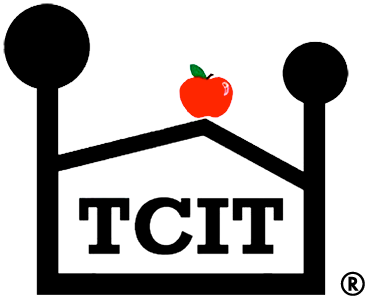Research
TCIT-U is adapted from Dr. Shelia Eyberg’s Parent-Child Interaction Therapy (PCIT), an evidence-based treatment for children aged 2-7 years with disruptive behavior. TCIT-U builds on the strong research base of PCIT as an effective means of improving adult-child relationships and consistent application of behavioral strategies for increasing children’s prosocial behavior. TCIT-U incorporates the core elements of PCIT while making adaptations to enhance its applicability to a classroom or childcare setting.
For a detailed description of the TCIT-U model, see:
Gershenson, R., Lyon, A., & Budd, K. S. (2010). Promoting positive interactions in the classroom: Adapting Parent-Child Interaction Therapy as a universal prevention program. Education and Treatment of Children, 33, 261-287.
Since 2006, several studies have investigated TCIT-U’s effectiveness and viability as a professional development model. These studies have demonstrated several benefits of training in TCIT-U for teachers and children, including:
- Teachers’ use of positive, responsive attention increases substantially across training
- Teachers rate their students’ behavior as significantly improved on a standardized strengths-based inventory
- Higher levels of teacher skill change are associated with greater improvements in children’s behavior
- Teachers report high satisfaction with TCIT-U
To read more on the effects of TCIT-U, see these peer-reviewed publications:
Garbacz, L. L., Zychinski, K. C., Feuer, R., Carter, J. S., & Budd, K. S. (2014). The impact of Teacher-Child Interaction Training on teachers’ skills and children’s behaviors. Psychology in the Schools, 51, 850-865.
Budd, K. S., Garbacz, L. L., & Carter, J. S. (2016). Collaborating with public school partners to implement Teacher-Child Interaction Training (TCIT) as universal prevention. School Mental Health, 8, 207-221.
Kanine, R. M., Jackson, Y., Huffhines, L., Barnett, A., & Stone, K. J. (2018). A pilot study of universal Teacher–Child Interaction Training at a therapeutic preschool for young maltreated children. Topics in Early Childhood Special Education, 38, 146-161.
Budd, K. S., (2018). Teacher-Child Interaction Training. In L. N. Niec (Ed.), Handbook of Parent-Child Interaction Therapy: Innovations and Applications for Research and Practice (pp. 215-231). New York: Springer Nature.
Fawley, K. D., Stokes, T. F., Rainear, C. A., Rossi, J. L., & Budd, K. S. (2019). Universal TCIT improves teacher-child interactions and management of child behavior. Journal of Behavioral Education. https://doi.org/10.1007/s10864-019-09337-6.
Davidson, B. C., Davis, E, Cadenas, H., Barnett, M., Sanchez, B. E. L., Gonzalez, J. C. & Jent, J. (2021). Universal Teacher-Child Interaction Training in early special education: A pilot cluster-randomized control trial. Behavior Therapy, 52, 379-393.
Santiago, C. D., Bustos, Y., Sosa, S. S., Jolie, S. A., Toussaint, R. F., Gebhardt, S., Stern, D., & Budd, K. S. (2022). Examining the implementation of Teacher-Child Interaction Training-Universal in public schools. Psychology in the Schools, DOI: 10.1002/pits.22753.
Davis, E. M., Schmidt, E., Rothenberg, A. W., Davidson, B. , Garcia, D., Barnett, M. L., Fernandez, C., & Jent, J. F. (2023). Universal Teacher-Child Interaction Training in early childhood special education: A cluster randomized control trial. Journal of School Psychology, 97, 171–191.
Rivas, A., Mooss, A., Hughes Pontier, C, Romillo, J. & Muños, E. (2023). The effect of Universal Teacher–Child Interaction Training on Hispanic teachers’ sense of self‑efficacy in early childhood education and care settings. International Journal of Child Care and Education Policy, 17, 12.
https://doi.org/10.1186/s40723-023-00115-6

